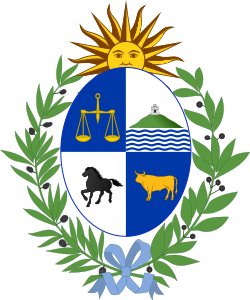 |
|---|
The legal system of Uruguay belongs to the Continental Law tradition.
Contents
The basis for its public law is the 1967 Constitution, amended in 1989, 1994, 1996, and 2004. According to it, Uruguay is a democratic republic. There is a clear separation of functions, between the Executive Branch, the Legislative Branch and the Judicial Branch. [1]
On the other hand, private relationships are governed by the Uruguayan Civil Code, which was first published in 1868, thanks to the work of Tristán Narvaja. [2]